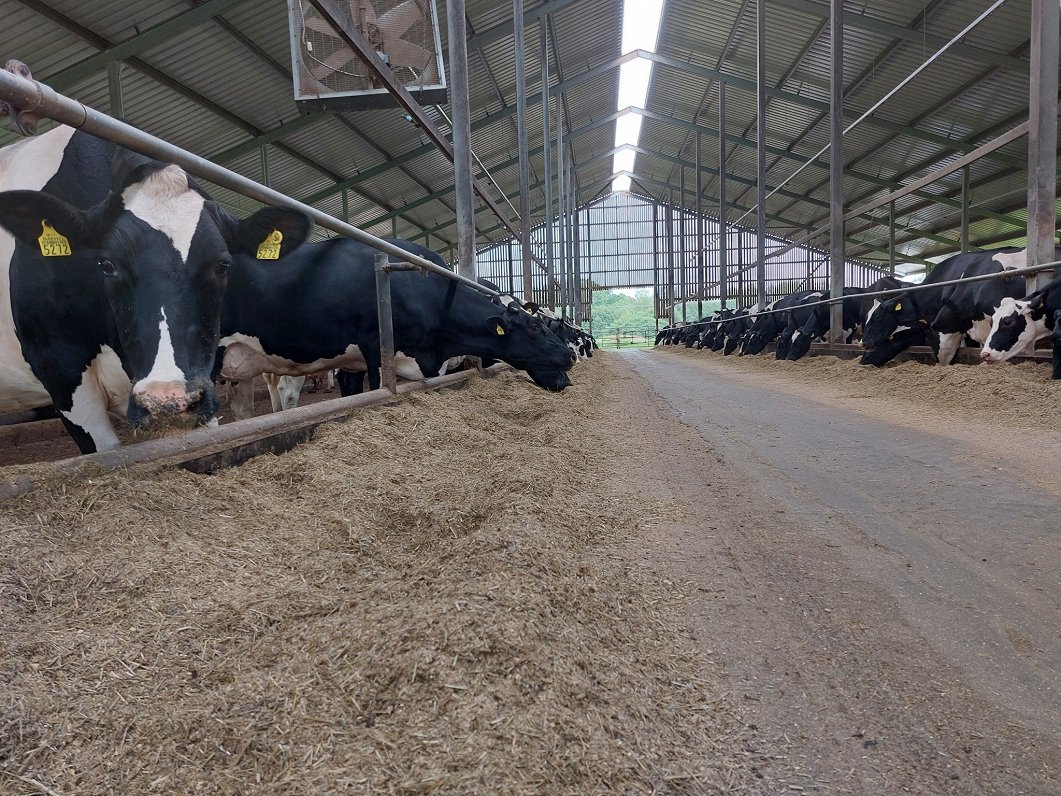“You can see all the misery of this year on our farm! We've practically finished harvesting, because [..[..] there are no harvests,” said Ieva Alpa-Eizenberga, the owner of a farm near Salacgrīva. “Our holding would need very large turnover funds to live up to next year's harvest, credit interest is currently very high, it's our biggest pain.”
The seasoned farmer Ilmārs Immurs acknowledged that he had not experienced so many natural disasters in the same season throughout his working life. “Two times the barley field was frozen, the grain ear is that you don't know if the machinery will even pick it up. If there are no ears, there are no grains, there is no harvest. Another misfortune that after the rains came second growth, it all goes to waste, interferes with harvesting, increases humidity, all unlucky.”
On the other hand, farms working in the livestock sector suffered the most from drought, so many owners, aware that the cattle will not have feed in the winter, are already reducing their herds.
Pēteris Bērziņš, owner of a farm in Smiltene municipality, said he had managed to gather hay but he also felt the effects of the milk crisis at the beginning of the year.
“There is no money left, all the forests have been felled, ditches chopped into chips, the big machinery has already been sold. And this month is the first time I can no longer pay bills, because I lost an average of 10 thousand a month in milk prices from February, I am on the verge of delaying payments next month and being near the brink of bankruptcy,” Bērziņš said.
Mārtiņš Vāgners, owner of the Rustupe beef farm in Bilska parish, said he had not yet managed to provide all the food needed, because the purchase price of meat was reduced and therefore the farm's assets were reduced.
“We want to be heard by the Minister for the industry, so that the Minister gives some signals that we will not be abandoned, the meat sector has been neglected in all sectors, it has been left to survive by itself,” said Vāgners.
In order to meet the situation on the spot, Agriculture Minister Didzis Šmits visited the holdings of Valmiera municipality. When looking at the fields of cereals, the Minister acknowledged that the losses caused to farmers should be identified first.
Farmers are also interested in the sharing of the aid granted by the European Commission.
"One of the arguments, such as dairy farming, is that maybe the funding can go to the availability of current funds, for those with problems. Clearly, we will not decide to compensate for all the losses, to compensate for the percentage so that the holdings can recover and continue to work next year. I certainly don't have the idea to scatter helicopter money, it certainly won't make any sense. There are different thoughts, we'll put them together.
"In any event, the European money will come in no sooner than the end of September, with its payments due by the end of the year, but whether this or the next government will decide, we will see that," the Minister for Agriculture said.





























